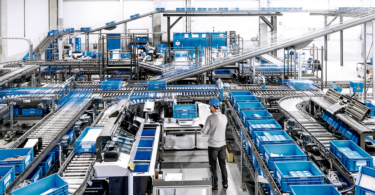For identification of inbound pieces of baggage, Istanbul's Ataturk Airport relies on automatic track and trace systems from SICK to improve transparency and traceability of passenger baggage.

Istanbul Ataturk Airport
Istanbul Ataturk Airport is Turkey’s biggest airport, currently ranked in 20th place of the world’s largest airports. It is operated by TAV Airports Holding which is among the leading airport operators in the world. TAV Airports operates in all areas of airport operations such as duty-free, food and beverage services, ground services, IT, security and operations services. In 2012 the number of passengers at Istanbul Ataturk Airport increased about 20 percent. Today, only a relatively small number of airports worldwide are capable of providing reliable and detailed data about inbound baggage and of making this information available to passengers and airlines. Generally, the number of incoming pieces of baggage is recorded at best, without any clear matching with individual passenger taking place. The airport in Istanbul has now changed this situation, using innovative track and trace systems from SICK for this purpose.
Increase Transparency

ALIS track and trace system
Today, eleven track and trace systems ALIS overall ensure a significant increase of transparency in the inbound area of Ataturk Airport. The passenger baggage is transported by the ground crew to the terminal and then fed into the airport’s baggage handling system. SICK’s reading stations were installed in those segments of the system located ahead of the baggage return area accessible to passengers, specifically on to the conveyor lines leading to the arrival carousels. Here, the suitcases marked with one-dimensional bar code labels pass through the automatic reading gates. Special diagnostic and visualization software provides statistics concerning the monitoring of the reading systems as well as system performance. In addition, this step sees processing of numerous other data used for evaluation reports. There is also the option of taking an image of the piece of luggage at each reading station and of archiving it together with the corresponding suitcase ID.
Contribution to the Lost-and-Found Process

Ideal for traceability of baggage: the ALIS track and trace system
“With the newly installed reading stations, transparency at the inbound area of Ataturk Airport has increased significantly,” says Bergman Gulsun, responsible for the project on behalf of SICK. “For example, today it is possible without any problems to inform passengers who have landed about the exact place and time of baggage return.” On top of that, however, the data provided by SICK’s systems can also make an important contribution to the lost-and-found process. If a passenger reports a suitcase “lost” to the airline, the carrier is now able to check whether this suitcase was still transported to the baggage carousel and went missing only afterwards. This facilitates and accelerates the search for missing items of baggage





